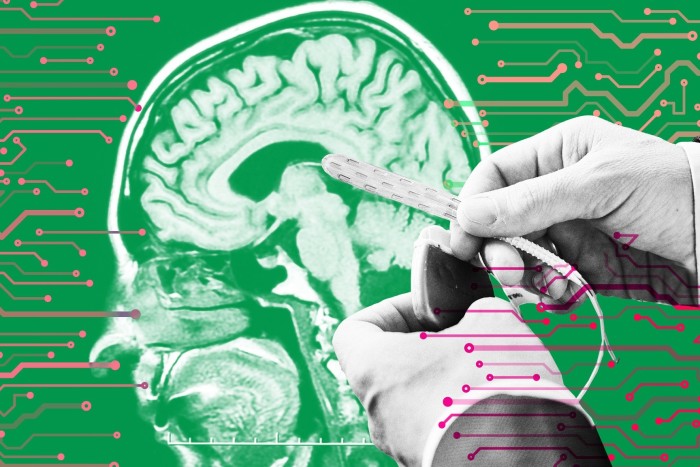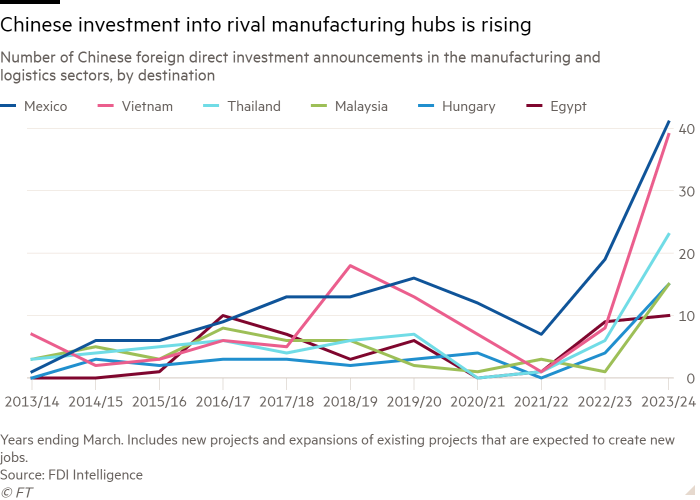
This article is an onsite version of our FirstFT newsletter. Subscribers can sign up to our Asia, Europe/Africa or Americas edition to get the newsletter delivered every weekday morning. Explore all of our newsletters here
Good morning. In today’s newsletter we’re covering:
But we start with Japan, where a government investigation has uncovered faulty testing data at some of the country’s leading carmakers in a widening scandal that has forced the suspension of some vehicle shipments.
Toyota chair Akio Toyoda was forced to apologise yesterday for the second time this year following the transport ministry’s investigation of 85 companies in the industry.
The results of the probe found fault with Toyota, Honda, Mazda, Suzuki and Yamaha Motor. The investigation was triggered by a string of improper testing incidents that hit Toyota subsidiaries, including Daihatsu Motor.
A total of six models, three of which are Toyota’s, have had shipments and sales suspended in Japan. Toyota’s share price closed down 1.8 per cent and Mazda fell 3.3 per cent.
Authorities are expected to raid various carmakers as soon as today, according to people familiar with the matter. Read more on the investigation’s findings — and how the deepening scandal could impact Toyota.
Here’s what else I’m keeping tabs on today:
-
India election results: The election commission is set to announce the official results following the end of a seven-phase, multi-week vote. Yesterday Indian markets hit record highs after exit polls forecast a landslide election win for Prime Minister Narendra Modi.
-
China: Today is the 35th anniversary of the crackdown on pro-democracy demonstrators in Tiananmen Square.
-
Economic data: South Korea reports May inflation figures while S&P Global publishes manufacturing PMI data for Thailand and Malaysia.
-
Pakistan-China ties: Pakistani Prime Minister Shehbaz Sharif begins a five-day visit to China at the invitation of Xi Jinping. The leaders will seek to upgrade co-operation on the China-Pakistan Economic Corridor, part of Beijing’s Belt and Road Initiative. (Reuters)
Five more top stories
1. China’s spy agency has accused its British counterpart MI6 of recruiting a Chinese couple employed by a “central national agency”, in a move that will ratchet up tensions with the UK over espionage. The accusation follows a series of allegations of Chinese spying in the UK and Europe, where authorities have warned that agents working for Beijing have infiltrated western political systems.
2. Australia’s government has ordered funds linked to a Chinese businessman to cut their stakes in a rare-earths miner, in a sign of how control of critical minerals is becoming a political concern. Canberra cited national interest grounds in demanding that Yuxiao Fund and four associates reduce or dispose of their stakes in rare-earths developer Northern Minerals.
3. Israel’s right-wing coalition clashed for a third consecutive day over a US-backed plan to end the war with Hamas. Ultranationalist finance minister Bezalel Smotrich threatened to oust Benjamin Netanyahu “with all strength and aggression” if the prime minister accepted it.
4. Claudia Sheinbaum will become Mexico’s first female leader after winning a landslide election victory. The peso tumbled, however, as investors fretted that a bigger than expected victory by the leftwing ruling party candidate increased the chances of radical constitutional changes.
5. Shares in GameStop surged more than 60 per cent after a post on Reddit purported to show that Keith Gill, also known as Roaring Kitty, had built a position worth $181mn in the struggling video game retailer. GameStop was trading yesterday at more than 2,300 times its estimated earnings per share for the coming year, Bloomberg data showed.
The Big Read

Radical advances in neurotechnology are helping disabled people walk and could provide the link between human and artificial intelligence. Computerised implants that interact with the brain and central nervous system can bypass neural impediments that prevent people who are severely disabled by accident or disease from moving their limbs — and enable those who cannot speak or operate a keyboard to communicate.
We’re also reading . . .
-
Chinese hotels: Beijing recently told hotels to stop turning away foreigners, yet it remains a lingering risk. Thomas Hale — who was recently rejected from a Changsha hotel — explores why.
-
Russia’s nuclear threats: Moscow is once again waving around its nuclear weapons. But its threats are losing their power, writes Gideon Rachman.
-
Consulting: With AI capable of taking over lower-end work and greater competition at the top, the sector faces something it has made a cult of, writes Rana Foroohar: disruption.
Chart of the day
Chinese businesses are increasingly favouring investment in countries including Vietnam and Mexico as trade tensions rise between western governments and Beijing.

Take a break from the news
Working from home has opened a new area in which to feel insecure about our appearance, writes Emma Jacobs. Online scrutiny and “Zoom dysmorphia” are prompting some executives to look to professional make-up artists ahead of work and media events.

Additional contributions from Tee Zhuo and Georgina Quach
Recommended newsletters for you
One Must-Read — Remarkable journalism you won’t want to miss. Sign up here
Sort Your Financial Life Out — Learn how to make smarter money decisions and supercharge your personal finances with Claer Barrett. Sign up here